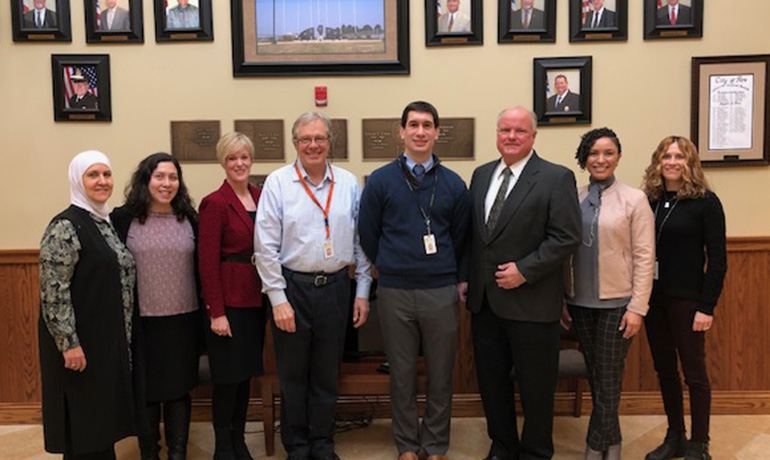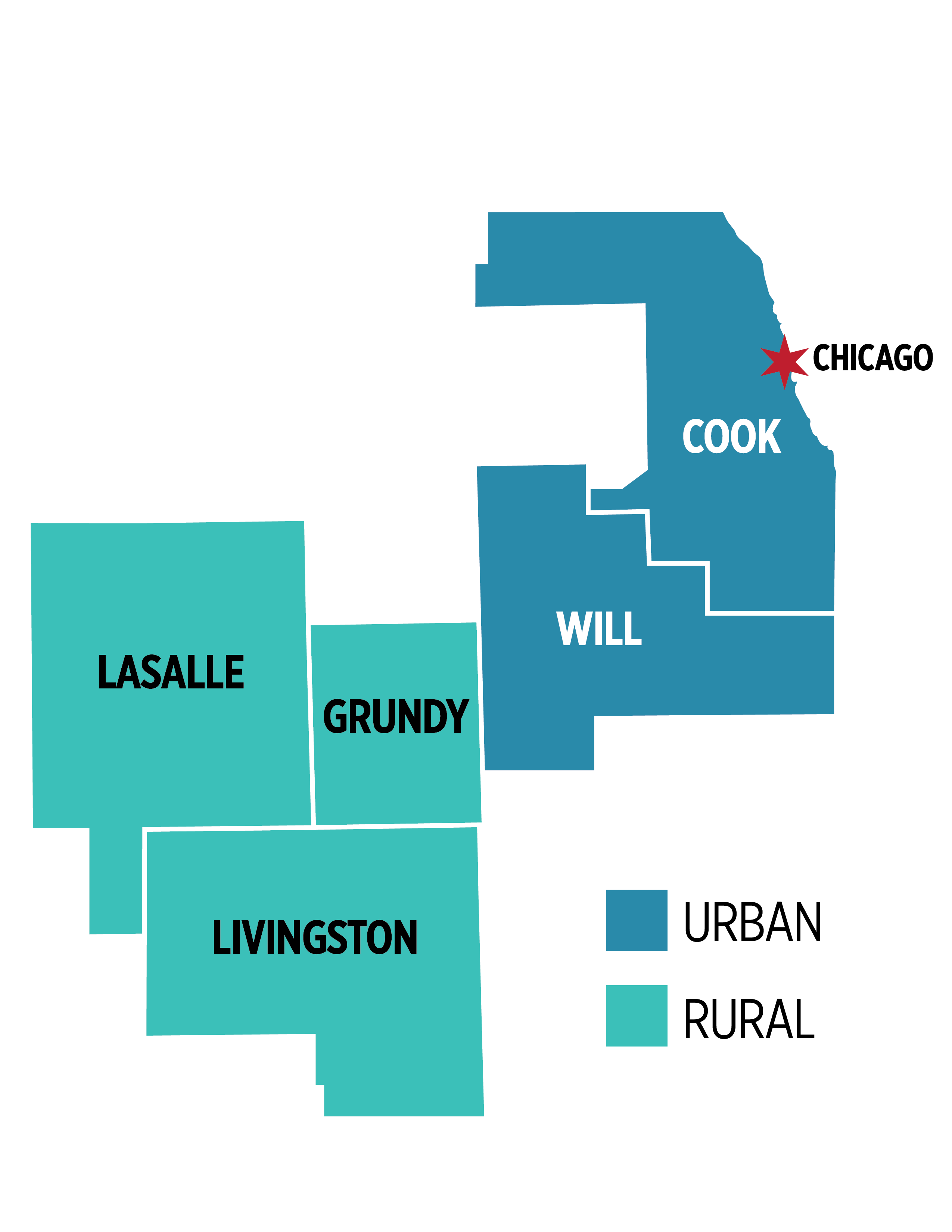
The University of Illinois Cancer Center intends to catch cancer no matter where it lives.

A contingent of UI Cancer Center administrators recently traveled to Peru, Ill., to convene with officials in LaSalle County to discuss how the two groups can work together to eradicate the deadly disease in the 17th most populous county in Illinois. LaSalle is one of five Illinois counties – Cook, Will, Livingston and Grundy are the others – in the UI Cancer Center’s catchment area.
More than distance separates Cook from LaSalle County. Cook boasts the largest population (more than 5 million) in the state, as well as the largest land area – 1,635 square miles. LaSalle County has the second largest land mass (1,148 square miles) in the state, but its population numbers 111,000 people, with the largest town being Ottawa (18,000 people). The county is 30 percent rural, with 14 percent of the population being minority.
LaSalle County has higher than average rates in several types of cancers: lung, breast and cervical. Compared to the state average, LaSalle County residents are more likely – 32 percent to 20 percent – to smoke, and more likely to be physically inactive – 27 percent to 22 percent. County residents are also less likely to have received a mammogram in the past two years or a Pap smear in the past three years. They have similar rates of receiving colorectal cancer tests (fecal occult blood test, or FOBT) in the past two years, or endoscopy ever.
Prostate cancer incidence is 33 percent higher per 100,000 (years 2011-2015) and cervical cancer 35 percent higher in LaSalle County than in Illinois. LaSalle’s rate of breast cancer is 12 percent lower. The mortality rates of breast, prostate and colon cancer in LaSalle County are comparable to that of the state’s; however, the death rate of lung cancer is 18 percent higher.
Led by Jennifer Woodard, director of strategic engagement, UI Cancer Center representatives discussed several options with Peru Mayor Scott Harl and Leslie Dougherty, a health educator at the LaSalle County Health Department, on how they can effectively collaborate. In addition to developing a memorandum of understanding and proclamation on making cancer a top priority in LaSalle County, a proposal was suggested to begin programs that will better educate the residents through health initiatives. OSF Healthcare is currently undergoing programming similar to this, and those in attendance in the meeting believed it could be expanded.
Including the LaSalle County Health Department in health initiatives is also of vital importance in reducing and detecting cancer in its early stages. With January being Cervical Cancer Screening Month, the LaSalle County Health Department offered free Pap smears for women ages 21 to 64 who live in the county and also neighboring Grundy County.
Low income women die from breast and cervical cancer more often than other women. These high mortality rates are attributed in part to the fact that these women generally do not receive regular mammograms and Pap Smears. As a result, cancers are diagnosed at later stages when it is more difficult to treat and the chances for survival are smaller.
The American Cancer Society reports that between 60 percent and 80 percent of American women with newly diagnosed invasive cervical cancer have not had a Pap smear in the past five years and/or may have never had one. Cervical cancer is one of the most common types of cancer worldwide and one of the most preventable and treatable when detected early. In addition to increasing awareness of cervical cancer there are preventative steps that women can take. Studies have shown that regular exercise, a healthy diet, routine screenings and getting the cervical cancer vaccine to help prevent Human Papilloma Virus (HPV) decreases the risk for cervical cancer. The LaSalle County Health Department offers HPV immunization clinics monthly, Dougherty said.
In addition to the UI Cancer Center delegation – Ahlam Al-Kodmany, associate director of administration; Kathy Tossas-Milligan, co-director of the Office of Community Engaged Research and Implementation Science (OCERIS); Erica Martinez, senior research specialist, OCERIS; and Marcel Bento Soares, senior associate dean for research, professor, and head of the Cancer Biology Department at the Illinois College of Medicine in Peoria, also attended – former Rockford Mayor Larry Morrissey lent his health care expertise to the proceedings.
During his 12 years in office, Morrissey, who currently serves as vice president of government sales and relations for Marathon Health, was instrumental in Rockford teaming up with Humana to pay firefighters to perform preventative house calls, with the goal of reducing serious health issues for the city’s residents. The pilot program could be duplicated in LaSalle County, Morrissey said.
